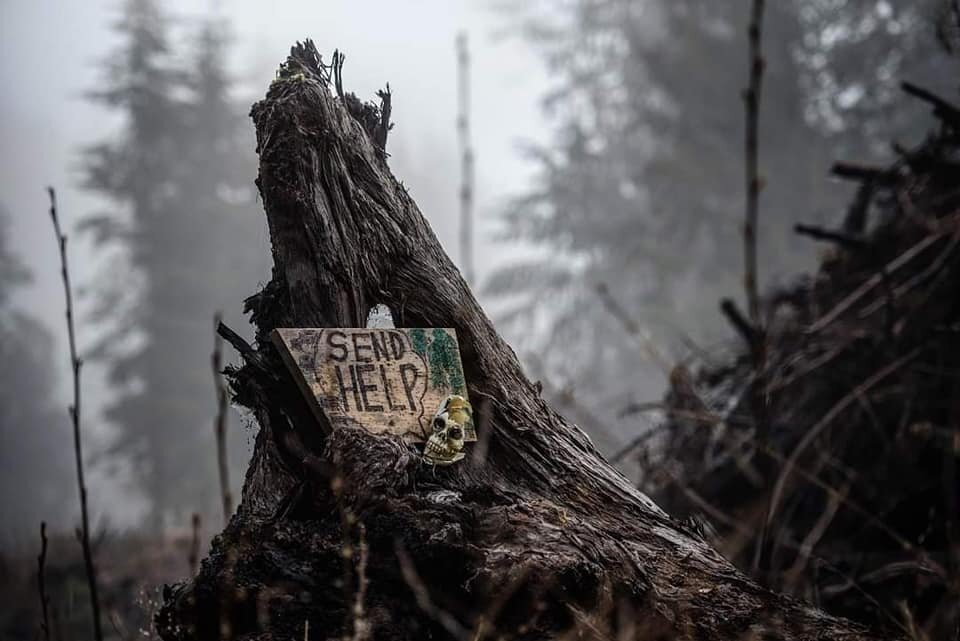
Scientists estimate that 50% of Earth should be in protected areas and climate stabilization areas by 2030 yet people are being attacked by their own governments to stop further environmental destruction, as in the case of the Fairy Creek Blockades where this photo was taken. Photo: Marnie Recker @marniereckerphoto
Adapted from an open letter to Prime Minister Justin Trudeau from 200 environmental and social justice groups, including Friends of Clayoquot Sound.
The recent election underscored many issues of critical importance to people in Canada, including the urgency of addressing climate change, spurring nature’s recovery and ensuring greater equity. To do so, Canada must act boldly.
Habitat loss is the number one driver of ecosystem degradation. Creating protected areas is an essential tool to address this crisis. The Canadian Government’s commitment to establish 10 new national parks and 10 new national marine conservation areas, and co-managing them with Indigenous nations, is an important goal as part of the commitment to protect 25% of land and ocean by 2025 and 30% by 2030.
A bold strategy must be built with Indigenous Peoples and with full respect for their rights, title and knowledge systems. Our expectation is that every Indigenous Nation that wants to create an Indigenous Protected and Conserved Area (IPCA) or Guardian program to protect their territories will be supported by the Canadian government, including using all possible influence with provincial and territorial governments. Providing capacity-building resources and legal, regulatory and policy conditions for establishment and maintenance of the IPCAs by First Nation, Inuit and Métis communities is a key part of reconciliation with Indigenous peoples as recommended by Canada’s Truth and Reconciliation Commission. We are urging all levels of government to fully implement the United Nations Declaration on the Rights of Indigenous Peoples and respect the inherent and constitutional rights of Indigenous Peoples in all conservation initiatives.
Protecting natural carbon storage from being destroyed, alongside dramatic reductions in fossil fuel emissions, is necessary to meet climate targets. Protected areas can contribute to climate change mitigation and adaptation while protecting biodiversity. Integrating climate change considerations into conservation planning will fundamentally improve land and ocean use decision-making and outcomes.
#LASTSTANDFORFORESTS
#WORTHMORESTANDING
—
This and many more articles can also be found in the FOCS Winter 2021-2022 Newsletter. Please click THIS LINK to explore more of our work and learn how you can help protect Clayoquot Sound.